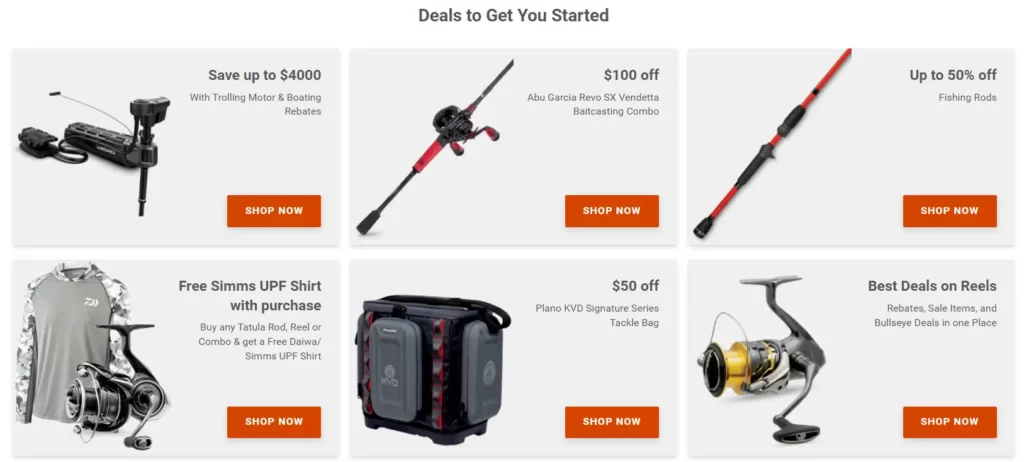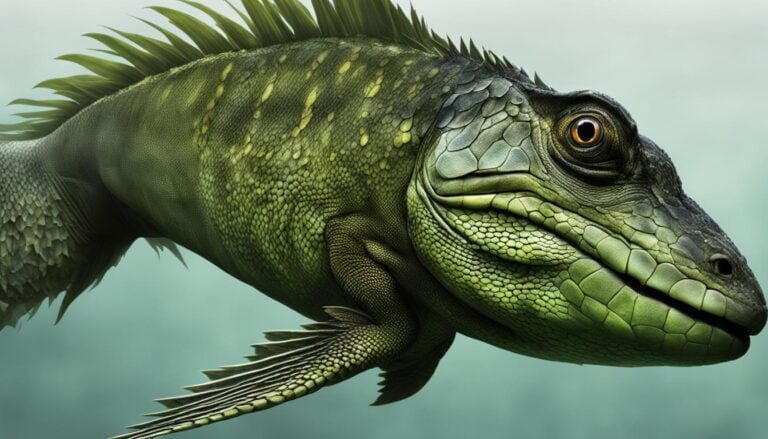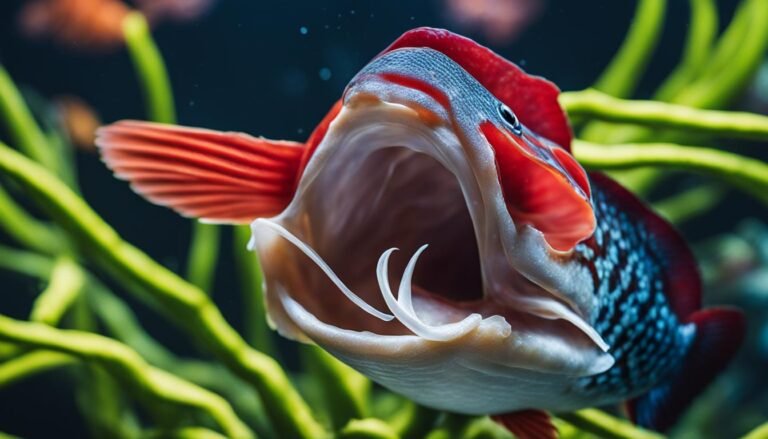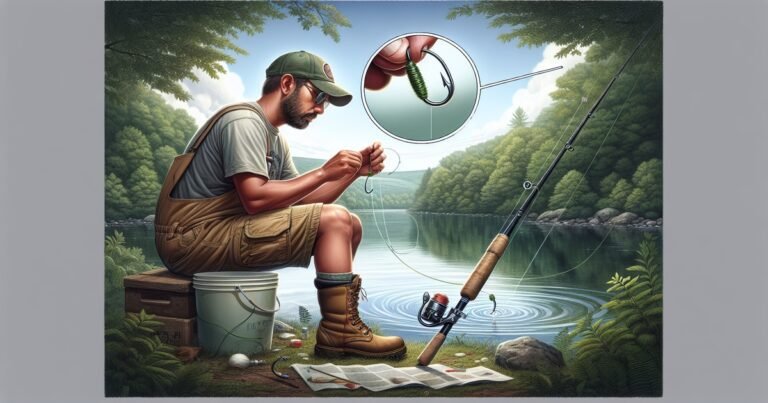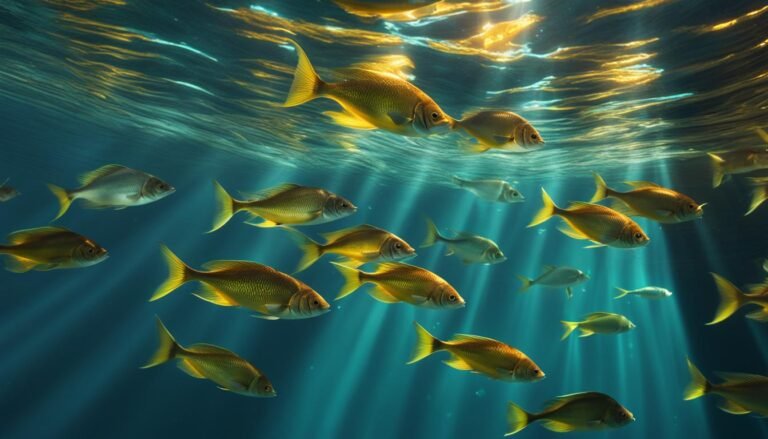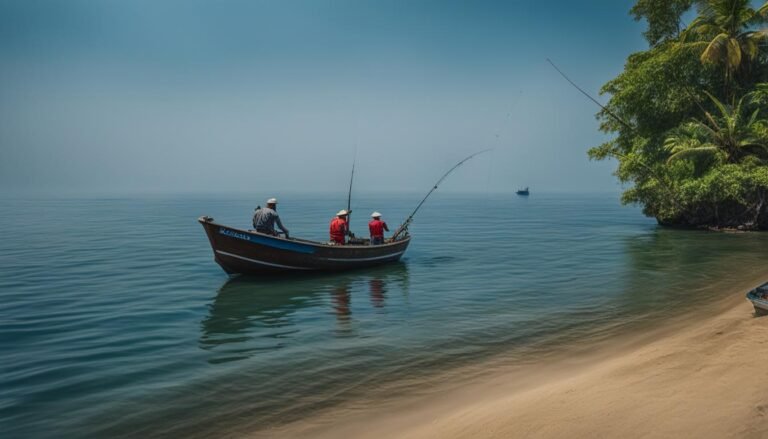Get Your Maine Fishing License Today – Enjoy the Thrill!
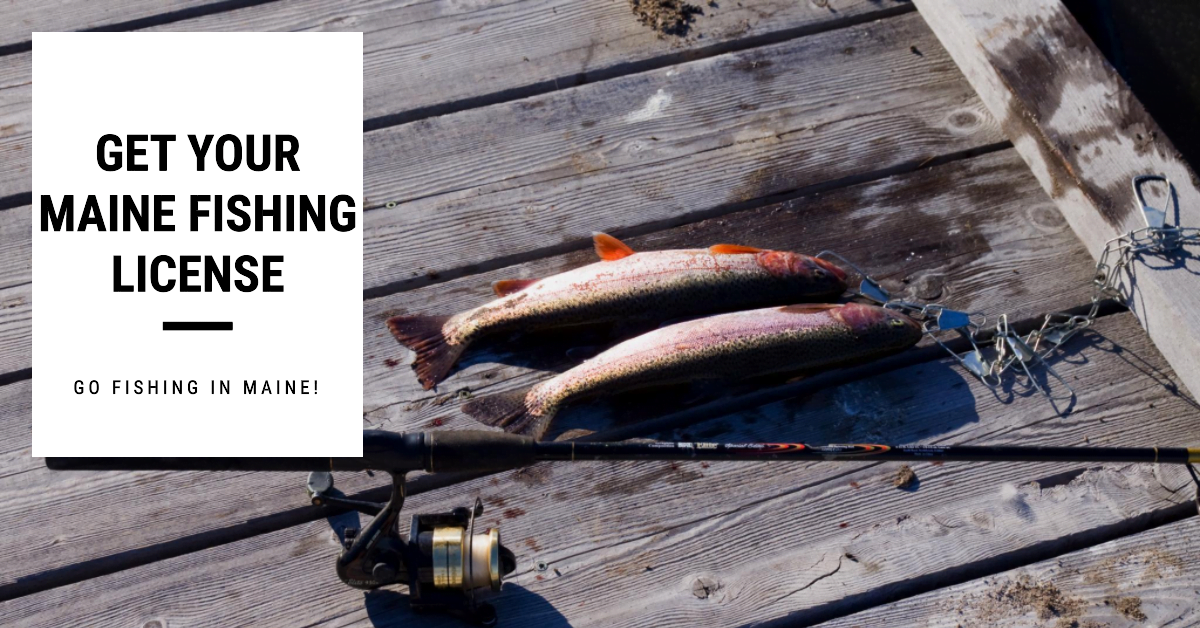
Key Takeaways
1. Obtain a Maine fishing license for a thrilling fishing adventure in the state’s waters.
2. Fishing license is required by law to protect fish populations and habitats, with fines for non-compliance.
3. License costs vary based on residency and duration, with additional fees for specific fishing types.
4. Apply for a fishing license online through the Maine Department of Inland Fisheries and Wildlife website.
5. Responsible fishing practices include respecting bag and size limits, catch-and-release, and preserving the environment.
If you’re planning to go fishing in Maine, obtaining a fishing license should be at the top of your to-do list. Not only is it required by law, but it also opens up a world of excitement and adventure.
Table of Contents
Why You Need a Maine Fishing License
If you’re planning to fish in Maine, it’s important to obtain a fishing license.
Here’s why:
| Reason | Description |
|---|---|
| Laws and regulations | It’s required by law to have a fishing license in Maine, and failure to comply can result in fines and penalties. The state has regulations in place to protect its fish populations and habitats, and a fishing license helps support these efforts. |
| Access to fishing spots | Many prime fishing locations in Maine are only accessible to those with a valid fishing license. Obtaining a license allows you to fish in a wider range of areas, increasing your chances of catching fish. |
So, how much does a Maine fishing license cost, and what are the regulations you need to follow?
Why You Need a Maine Fishing License: Regulations and Costs
Fishing license fees vary depending on your residency status, duration of license, and type of license. Here’s a breakdown of the costs:
- Resident: 1 year – $25, 3 years – $70, 5 years – $100
- Non-resident: 1 day – $11, 3 days – $23, 7 days – $43, season – $64
- Junior (under 16): Free
Additionally, there may be extra fees for specific types of fishing, such as saltwater fishing or ice fishing.
It’s important to note that Maine has regulations in place to protect its fish populations and habitats, so it’s essential to follow these guidelines. For instance, there are minimum size limits for certain fish species, and catch-and-release fishing may be required in some areas. You can find a complete set of regulations on the Maine Department of Inland Fisheries and Wildlife website.
Now that you know why a Maine fishing license is necessary and how much it costs, let’s dive into how to obtain one.
How to Obtain a Fishing License in Maine
Getting a fishing license in Maine is a straightforward and convenient process.
Here’s a step-by-step guide:
- Visit the official Maine Department of Inland Fisheries and Wildlife website to apply for a license.
- Choose the type of license you need, such as recreational or commercial, based on your specific fishing needs.
- Enter your personal information along with any other necessary details like your address, phone number, and email.
- Review the information you have entered and ensure its accuracy before making payment.
- Complete the payment process using any of the available payment methods such as credit or debit cards.
- Print out your license or save it on your mobile device and carry it with you whenever you go fishing in Maine.
Alternatively, you can also get a fishing license in Maine from any of the authorized retailers across the state.
Get a Maine Fishing License Online
While you can still get a paper fishing license by visiting an authorized seller, applying for a license online is more convenient and time-saving. The online application process is available 24/7, and you can complete it from the comfort of your own home.
When applying online, you can choose between a digital or printable version of your license, which can be accessed through your Maine Department of Inland Fisheries and Wildlife account. This is a great option for those who don’t want to worry about carrying a physical license with them while fishing.
The Benefits of a Maine Hunting and Fishing License
A Maine hunting and fishing license opens up a world of opportunity for outdoor enthusiasts. With this combined license, anglers and hunters can take advantage of all that Maine’s wilderness has to offer and enjoy a variety of different activities throughout the year.
One of the primary benefits of obtaining a Maine hunting and fishing license is the added convenience. Instead of having to obtain two separate licenses, hunters and anglers can obtain a single license that covers both activities. This simplifies the licensing process and saves both time and money.
In addition to the convenience factor, a combined license also provides greater flexibility in terms of outdoor activities. With hunting and fishing seasons taking place at different times of the year, anglers who also hunt can make the most of their time spent in the outdoors, and vice versa.
Another significant advantage of obtaining a combined hunting and fishing license in Maine is the expanded range of outdoor opportunities it provides. In addition to freshwater fishing, anglers with this license can also enjoy saltwater fishing and the thrill of pulling in a variety of different species from the ocean. Hunters can take part in a wide range of activities, including big game hunting, small game hunting, and trapping, among others.
Understanding Maine Fishing License Regulations
When it comes to obtaining and using a fishing license in Maine, there are specific regulations and requirements that anglers must follow. It is crucial to understand these regulations as they help to maintain the sustainability of Maine’s fisheries and ensure that everyone can enjoy the sport of fishing safely and responsibly.
License Requirements
To obtain a Maine fishing license, you must be at least 16 years old, unless you are fishing under the open water and ice fishing rule. You will also need to provide your basic personal information, such as your name, address, and birth date, when applying for a license.
Additionally, there are specific requirements regarding the type of fish you can catch, the size of the fish, and the number of fish you can keep. For example, some species may have a catch-and-release requirement or a daily bag limit.
License Validity and Renewal
A Maine fishing license is valid for one year from the date of purchase. Anglers can choose to purchase a license for a shorter duration if they prefer. If you plan to continue fishing after your license expires, you must renew your license.
You can renew your license online, by mail or phone, or in person at any authorized agent location. When renewing your license, you will need to provide your previous license information and pay the appropriate fee.
Penalties for Violating Regulations
Maine takes fishing regulations seriously, and failure to abide by them can result in penalties and fines. These penalties may include fines, revocation of your license, or even criminal charges.
It’s important to remember that the regulations are in place to protect the natural resources and ensure the sustainability of Maine’s fisheries. Make sure to familiarize yourself with the regulations and follow them closely to avoid any penalties.
Exploring Maine Fishing Seasons and Laws
Before embarking on a fishing trip in Maine, it’s important to understand the fishing seasons and laws in the state. The Maine Department of Inland Fisheries and Wildlife regulates fishing in Maine and enforces regulations to protect fish populations and their habitats.
Maine Fishing Seasons
Maine has several fishing seasons throughout the year, including freshwater and saltwater seasons. The freshwater season typically runs from April to September, while the saltwater season runs year-round. Additionally, certain species of fish have their own specific seasons, such as the brook trout season, which typically begins in early May and goes until late September. It’s important to check the specific regulations for the body of water you plan to fish in and the species you plan to target to ensure compliance with the laws.
Maine Fishing Laws
Maine has several laws that anglers must follow. These include regulations on bag limits, size limits, and catching and releasing certain species. For example, the bag limit for brook trout is two fish, while the size limit for landlocked salmon is 16 inches. Additionally, anglers must obtain a special permit for fishing in designated “fly fishing only” waters. Violations of these regulations can result in fines or even the loss of your fishing license.
“It’s important to understand the specific regulations for the body of water you plan to fish in and the species you plan to target to ensure compliance with the laws.”
Anglers should also be aware of regulations surrounding the transportation of fish. In Maine, it’s illegal to transport live fish, and any fish caught must be kept whole while being transported. Fish that have had their heads or tails removed are considered fillets and must have a skin patch that is at least two square inches in size attached to the fillet. This helps law enforcement officials ensure that anglers are complying with size and bag limit regulations.
Overall, understanding Maine’s fishing seasons and laws is essential for any angler planning a fishing trip in the state. By following the regulations and guidelines set forth by the Maine Department of Inland Fisheries and Wildlife, anglers can help protect fish populations and habitats while enjoying all that Maine’s waters have to offer.
The Cost of a Maine Fishing License
Obtaining a fishing license in Maine is a necessary step for anglers to enjoy the state’s beautiful waters. The cost of a Maine fishing license varies based on certain factors such as residency status, age, and the length of the license.
For Maine residents, an annual fishing license costs $27, while a seven-day license costs $16. The cost for non-residents is higher, with an annual license priced at $64 and a seven-day license at $48. Youth aged 16-17 can obtain a youth license for $7.
Keep in mind that these costs are subject to change and should be confirmed at the time of purchase. Additionally, there are additional costs for certain permits, such as the Lake Trout and Landlocked Salmon Stamp, which costs an additional $12 for residents and $24 for non-residents.
It’s important to note that fishing without a license in Maine can result in fines and penalties. These fines include a fine of $100 for fishing without a license and an additional fine of $500 for each fish caught when fishing without a license. It’s not worth the risk.
Overall, a Maine fishing license is an affordable investment that provides access to some of the most beautiful fishing spots in the country.
The Cost of a Maine Fishing License
Obtaining a Maine fishing license is a necessary requirement for anyone who wants to fish in the state’s abundant waters. The costs associated with acquiring this license vary depending on several factors, including the type of license, age, and residency status.
Residents of Maine can purchase a fishing license for as low as $25 for an annual license or $7 for a one-day license. Non-residents can get a 1-day license for $15 or opt for an annual license that costs $64.
For anglers who meet certain qualifications, such as disabled veterans, individuals over 70 years old, and minors under 16, the cost of obtaining a fishing license may be reduced or even waived entirely.
It’s worth noting that those who engage in activities such as ice fishing, saltwater fishing, or fishing for species like elvers, may require additional permits. These permits come at an extra cost, so anglers should familiarize themselves with all applicable regulations and requirements to avoid fines and other penalties.
Tips for Responsible Fishing in Maine
Fishing is a beloved activity in Maine, but it also comes with responsibilities.
Here are some tips to ensure that you enjoy your fishing experience while preserving Maine’s beautiful natural environment:
- Obtain a Maine Fishing License: Before you cast your line, make sure you have a valid fishing license. This not only ensures that you are fishing legally but also contributes to the conservation and management of Maine’s fishing resources.
- Respect Bag and Size Limits: Make sure you are familiar with the bag and size limits for the species you are targeting. Follow these regulations to help preserve fish populations for future generations of anglers.
- Practice Catch-and-Release: Consider releasing some or all of the fish you catch back into the water. This helps sustain fish populations while allowing you to enjoy the thrill of the catch. If you do keep fish, make sure to properly clean and store them.
- Be Mindful of the Environment: When fishing, try to minimize your impact on the environment. Avoid littering, use biodegradable bait and lures, and dispose of fishing line responsibly. Also, be aware of your surroundings and avoid damaging sensitive ecosystems, such as spawning areas and vegetation.
- Respect Other Anglers: Fishing is a popular activity in Maine, and chances are you will encounter other anglers during your trip. Be respectful of their space and avoid interfering with their fishing experience. Follow any posted fishing regulations and guidelines to ensure that everyone can enjoy their time on the water.
- Practice Safe Boating: If you are fishing from a boat, make sure to follow all boating regulations and guidelines. Wear appropriate safety gear, such as life jackets, and be aware of weather conditions and potential hazards. Always exercise caution and be prepared for emergencies.
By following these tips, you can help ensure that fishing remains a sustainable and enjoyable activity in Maine for years to come.
FAQ about Maine Fishing License
Fishing in Maine may seem straightforward, but as with any activity, there are certain rules and regulations that must be followed. Here are some commonly asked questions and concerns regarding Maine fishing licenses:
Do I need a fishing license to fish in Maine?
Yes, a fishing license is required to fish in Maine for anyone 16 years and older, including non-residents.
How much does a Maine fishing license cost?
The cost of a fishing license in Maine varies depending on the type of license and the residency status of the angler. For residents, a standard fishing license costs $25 while non-residents can purchase a 1-day license for $11 or a 3-day license for $23.
How do I obtain a Maine fishing license?
There are several ways to obtain a fishing license in Maine. Anglers can purchase a license online through the Maine Department of Inland Fisheries and Wildlife website, in person at regional offices or license agents, or by mail.
Can I fish without a license in Maine if I am under 16 years old?
Yes, anglers under the age of 16 do not need a fishing license to fish in Maine.
Are there any additional permits required for certain fishing activities in Maine?
Yes, some fishing activities in Maine require additional permits. For example, a special permit is required for ice fishing in waters stocked with landlocked salmon, and a special permit is needed for the use of lead jigs in certain bodies of water.
What are the fishing regulations in Maine?
Maine fishing regulations vary depending on the species of fish and the location of the angler. It’s important to check the current regulations before fishing to ensure compliance.
What are some responsible fishing practices in Maine?
Responsible fishing in Maine includes practicing catch and release when appropriate, obeying all fishing laws and regulations, properly disposing of waste, and respecting the natural surroundings.
Hopefully, this FAQ section has provided helpful information about Maine fishing licenses and regulations. Always make sure to check the current regulations before heading out on a fishing trip to ensure a safe and compliant experience.
Resources and External Links
Here are some additional resources and external links that can help you learn more about “Maine Fishing License”:
Articles:
- Licenses & Permits: Fishing: Fishing & Boating: Maine Dept of Inland …
- License Requirements and Fees: Laws & Rules: Fishing: Fishing … – Maine
- IFW Hunting & Fishing Licenses | Department of Inland Fisheries & Wildlife
- Fishing: Fishing & Boating: Maine Dept of Inland Fisheries and Wildlife
- Maine.gov: Residents: Hunting and Fishing in Maine
YouTube Videos:
- Maine Fishing Laws Panel Discussion
- Teenager Learns The Importance Of Fishing With A License | North Woods Law
These resources provide additional information and insights about “Maine Fishing License”.


